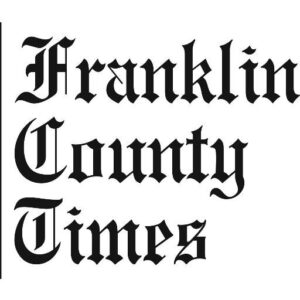State officials do not expect more proration
By Staff
Jonathan Willis
Local school officials are crossing their fingers and hoping that state education Superintendent Joe Morton’s prediction that there will be no additional proration this school year is correct.
Morton told the House education budget committee this week that he does not expect additional proration this year. He sent an email to school officials Thursday reiterating that fact.
“If that works out to be true, they basically saved jobs,” said Russellville city schools superintendent Don Cox.
“We got a memo saying that we would not be prorated more than the 7.5 percent that we already have been.”
The House education committee approved a fiscal 2011 education budget of $5.48 billion, which is a $169.9 million, or 3 percent, increase over the current 2010 budget.
Cox said that officials had heard rumors that proration could be as high as 12 percent.
“More proration would have been a killer,” he said. “This news, if it holds true, is very good. It won’t allow more money for teachers’ supplies or anything like that, but it will save jobs.”
The Franklin County school system has been crushed by proration.
“Hopefully the legislature will pass a budget so we won’t have to go through more proration,” said county schools superintendent Gary Williams.
“If we have to go through another year of proration it will be devastating.”
The county system has been strapped for funds and has used all of the available credit they had at a local bank.
“We have to pass a budget a year ahead of time and personnel cuts have to be made by the end of the school year,” Williams said.
“With 11 percent proration we made adjustments in May, then Gov. Riley took $2.4 million away in October. We passed anther budget for this school year and the state passed it. In October the governor announced 7.5 percent proration.
“We went to the bank for a $3 million line of credit. We are $280,000 per month short on payroll. I have to call the banks to get interest rates because we have to get another line of credit,” Williams said, while explaining how a temporary one-cent sales tax increase that was implemented in January could help the system.
“That is why we need your support,” Williams said. “The tax will bring in close to $1 million and that is $1 million we don’t have to borrow and don’t have to pay back and cost us more money.
Taxes in Jan. brought in $65,000.
“We were hoping to get $80,000 but that is still short $200,000,” Williams said.
“We are due coal and timber money, but it is three months late. If we get that, it will get us by for a month.”
The 2011 education budget of $5.48 billion directs about $240 million in revenue toward keeping jobs and key programs instead of paying rising employee benefits cost.
The new proposed budget would:
During a city school board meeting Thursday, Cox announced that a recent rankings list of state systems based on local revenue showed a remarkable increase for the city schools.
In October, the city council adjusted the way they allocate funds to the system. At that time, city schools ranked 90th out of 131 systems in the state in the amount of local funding they received.
The new data lists the system at 41.
“The city council and mayor stepped up to the plate and helped us,” Cox said. “We are grateful to them.”
The rankings do not include the amount of funding the system is now receiving through the one-cent sales tax increase that temporarily went into effect in January.













